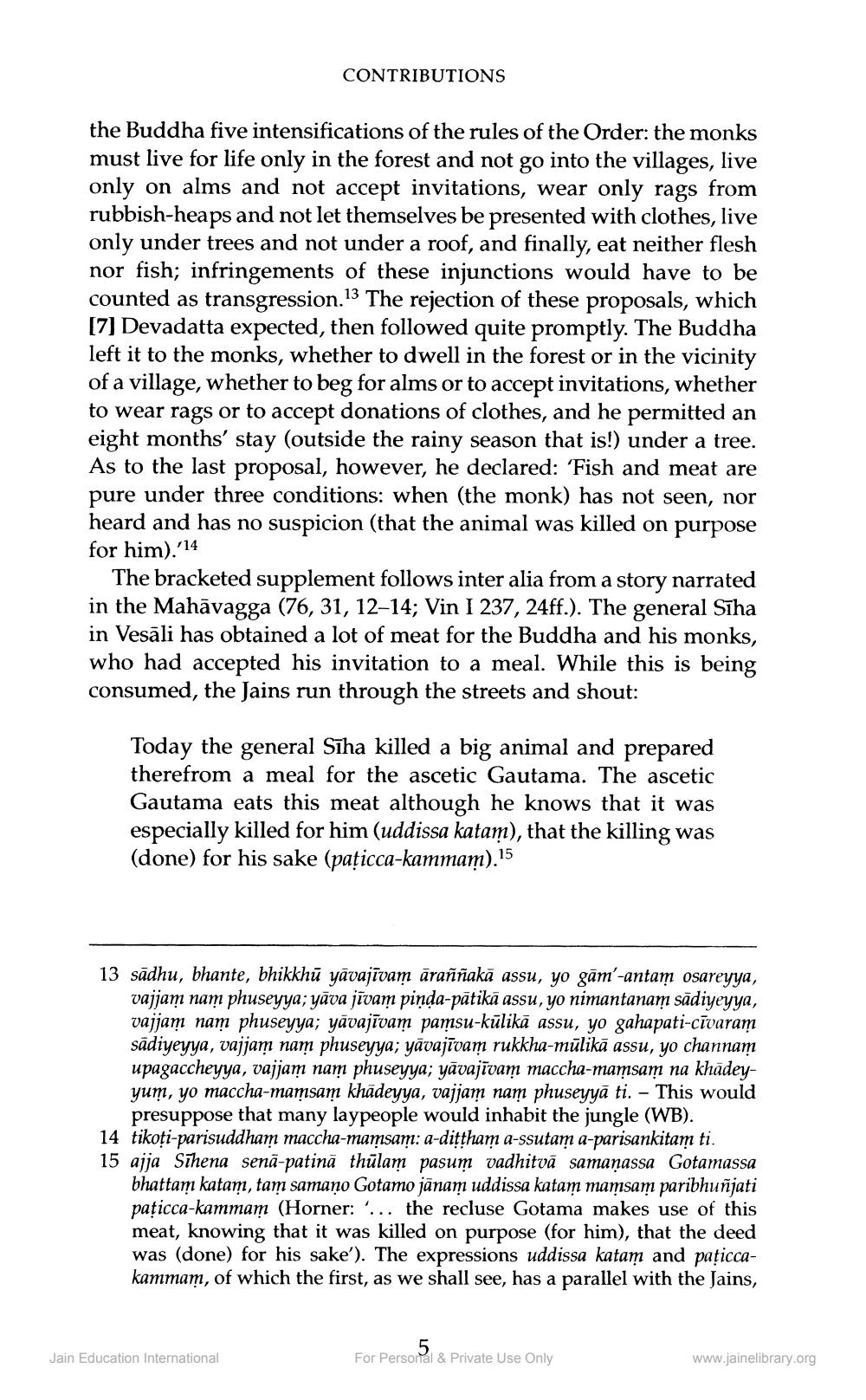________________
CONTRIBUTIONS
the Buddha five intensifications of the rules of the Order: the monks must live for life only in the forest and not go into the villages, live only on alms and not accept invitations, wear only rags from rubbish-heaps and not let themselves be presented with clothes, live only under trees and not under a roof, and finally, eat neither flesh nor fish; infringements of these injunctions would have to be counted as transgression.13 The rejection of these proposals, which [7] Devadatta expected, then followed quite promptly. The Buddha left it to the monks, whether to dwell in the forest or in the vicinity of a village, whether to beg for alms or to accept invitations, whether to wear rags or to accept donations of clothes, and he permitted an eight months' stay (outside the rainy season that is!) under a tree. As to the last proposal, however, he declared: 'Fish and meat are pure under three conditions: when (the monk) has not seen, nor heard and has no suspicion (that the animal was killed on purpose for him).'14
The bracketed supplement follows inter alia from a story narrated in the Mahāvagga (76, 31, 12–14; Vin I 237, 24ff.). The general Sīha in Vesāli has obtained a lot of meat for the Buddha and his monks, who had accepted his invitation to a meal. While this is being consumed, the Jains run through the streets and shout:
Today the general Sīha killed a big animal and prepared therefrom a meal for the ascetic Gautama. The ascetic Gautama eats this meat although he knows that it was especially killed for him (uddissa katam), that the killing was (done) for his sake (pațicca-kammam).15
13 sādhu, bhante, bhikkhū yāvajīvam āraññakā assu, yo gām'-antam osareyya,
vajjam nam phuseyya; yāva jīvam pinda-pātikā assu, yo nimantanam sādiyeyya, vajjam nam phuseyya; yāvajīvam pamsu-kūlikā assu, yo gahapati-cīvaram sādiyeyya, vajjam nam phuseyya; yāvajīvam rukkha-mülikā assu, yo channam upagaccheyya, vajjam nam phuseyya; yāvajīvam maccha-mamsam na khādeyyum, yo maccha-mamsam khädeyya, vajjam nam phuseyyā ti. - This would
presuppose that many laypeople would inhabit the jungle (WB). 14 tikoti-parisuddham maccha-mamsam: a-dittham a-ssutam a-parisankitam ti. 15 ajja Sthena senā-patinā thūlam pasum vadhitvá samaņassa Gotamassa
bhattam katam, tam samaņo Gotamo jānam uddissa katam mamsam paribhuñjati paticca-kammam (Horner: ... the recluse Gotama makes use of this meat, knowing that it was killed on purpose (for him), that the deed was (done) for his sake'). The expressions uddissa katam and paticcakammam, of which the first, as we shall see, has a parallel with the Jains,
Jain Education International
For Personal & Private Use Only
www.jainelibrary.org




